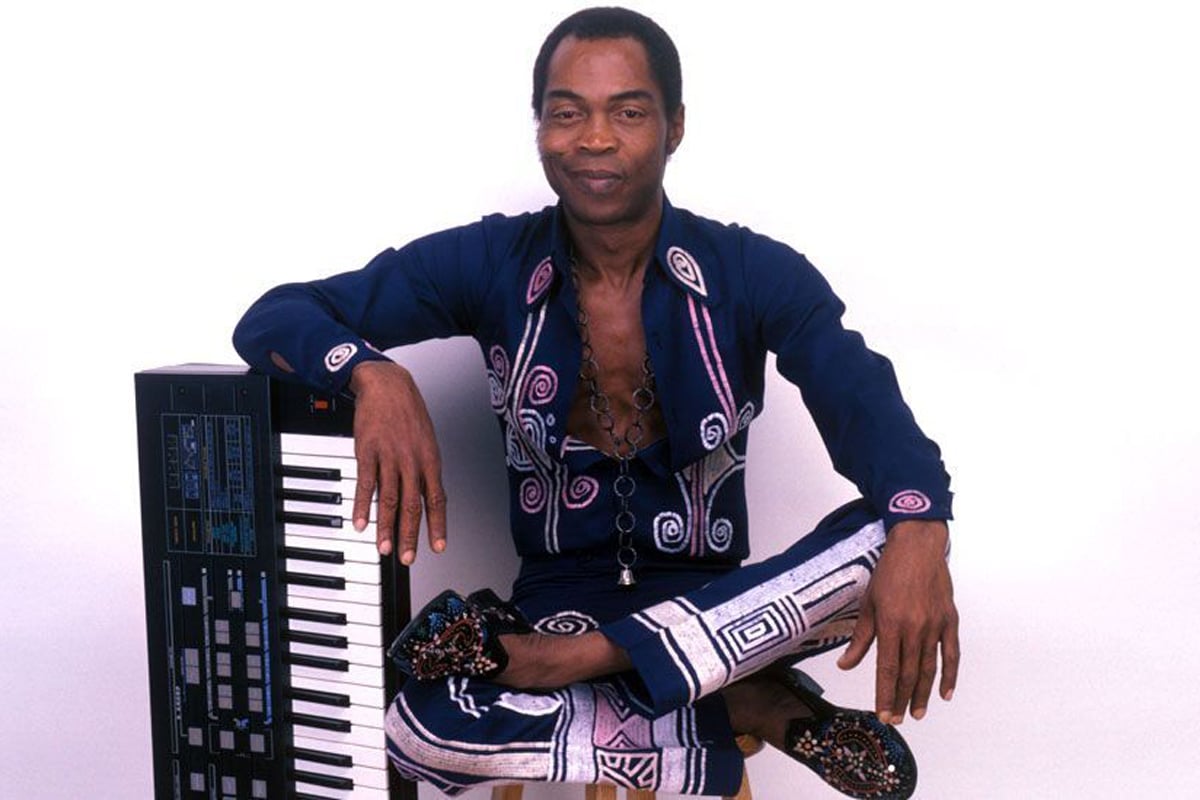Fela Kuti: The Musical Legacy

He was more than a multi-instrumentalist and a musician. In life, he was a Pan-Africanist and a political activist, and in death, a legend.
Born in the city of Abeokuta, Ogun State in Nigeria on the 15th of October 1938 to Chief Funmilayo Ransome-Kuti, a political and women’s right activist and Israel Oludotun Ransome-Kuti, an educator and a clergyman, Olufela Olusegun Oludotun Ransome-Kuti or Fela Anikulapo Kuti as he is known worldwide was a phenomenal entertainer whose music broke through barriers and inspired millions.
His musical journey began in 1958 with the conception of his band ‘Fela Ransome Kuti & His Koola Lobitos’ in the UK. There, he introduced his listeners to a more Nigerian version of Highlife, a genre that can trace its origin back to Ghana; by including more instruments such as drums and trumpets and percussion. He returned to Nigeria in 1963 and reformed his band, renaming it ‘Koola Lobitos’. Fela slowly began to make a name for himself in the entertainment industry. In 1969, he went on his first US tour but unfortunately, it wasn’t as successful as he had hoped. While in the US, he met Sandra Izsadore, an activist and former black panther member. She introduced him to the writings of Malcolm X and various political activists. Both his music and political views were greatly influenced by what he had learnt.
Before he left Los Angeles in 1970, Fela recorded his album ‘The 69 Los Angeles Sessions. His song My Lady Frustration from the album introduced the world to the genre we all love today; Afrobeat. This new genre slowly became known for its lively instruments and deeply rooted African sounds. This sound bred a new Fela. On his return to Nigeria, he renamed his band ‘Koola Lobitos’ to ‘Fela Ransome-Kuti & The Afrika 70’.
Not only did he change his style of music and the name of his band, but Fela also changed the message behind his music, using it to speak on the political issues in Nigeria and protest the different military regimes he lived through. While Fela’s musical activism incited bravery and encouraged his listeners to speak up against injustice, his constant criticism of military rule put him under the government’s radar. In retaliation, he was arrested and tortured numerous times. Fela never let his ill-treatment from his government deter him from speaking the truth.
In 1979, Fela changed the name of his band from ‘Afrika 70’ to ‘Egypt 80’. He did so to remind Africans that the Egyptian civilization belonged to Africa.
Fela had a successful 39-year long musical career that unfortunately ended with his death in 1997. A year after his death, the first-ever Felabration, a week-long music festival held annually on Fela’s birth week, commenced.
Today, he is known worldwide as the Father of Afrobeat, and though he passed two decades ago, his influence can be heard and felt in the Nigerian music industry. Young artists such as Burna Boy, Lady Donli have cited him as an inspiration to their music. Fela’s influence transcends the shores of Africa, and his legacy lives on.
To truly understand and appreciate Afrobeat, you must open your eyes and ears to the musical genius that was Fela Anikulapo Kuti.
